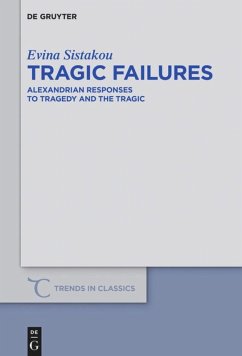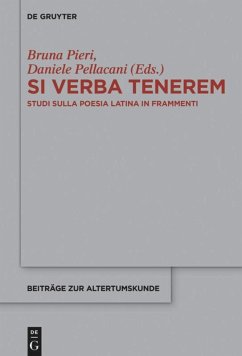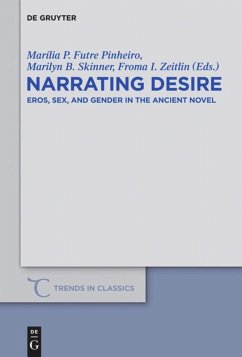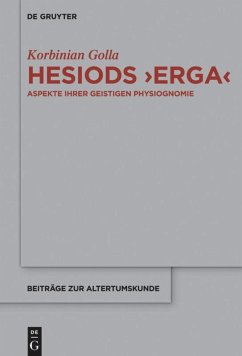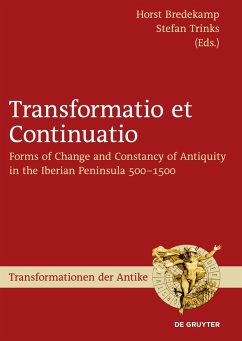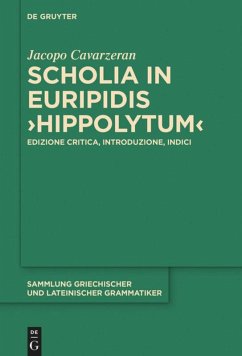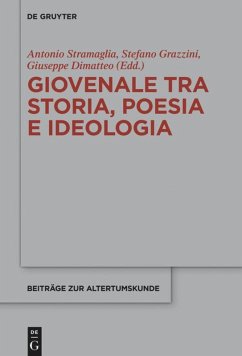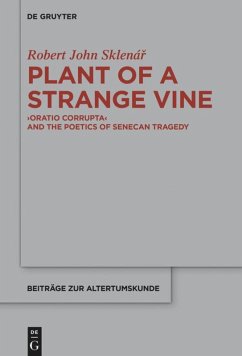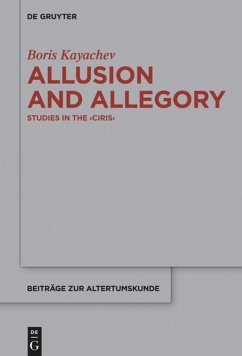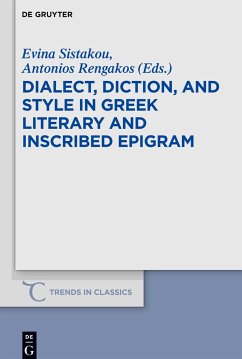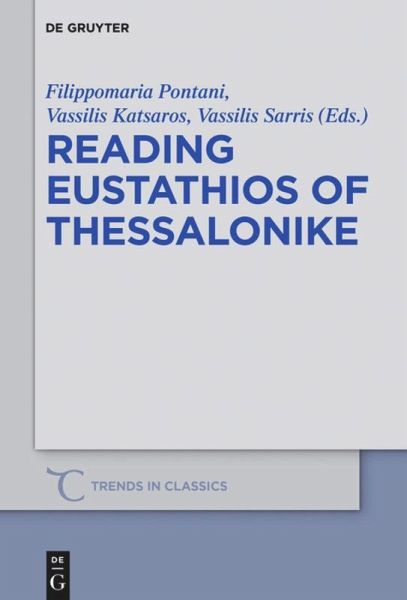
Reading Eustathios of Thessalonike
Versandkostenfrei!
Versandfertig in 6-10 Tagen
154,95 €
inkl. MwSt.

PAYBACK Punkte
0 °P sammeln!
Despite the relevance of Eustathios to both Classical and Byzantine studies, no monograph and no collective volume in English has yet been devoted to his figure. This book attempts to fill in this gap by addressing the various facets of his output - above all his commentaries on Homer, Dionysius the Periegete, Pindar, and the Iambic Canon on the Pentecost; but also his historiographical work, his speeches and his theological production receive due attention. The book also tackles several aspects of Eustathios' style (proverbs, allusions, etc.), and the meaning of his work in the context of his...
Despite the relevance of Eustathios to both Classical and Byzantine studies, no monograph and no collective volume in English has yet been devoted to his figure. This book attempts to fill in this gap by addressing the various facets of his output - above all his commentaries on Homer, Dionysius the Periegete, Pindar, and the Iambic Canon on the Pentecost; but also his historiographical work, his speeches and his theological production receive due attention. The book also tackles several aspects of Eustathios' style (proverbs, allusions, etc.), and the meaning of his work in the context of his historical moment. Addressed at specialists but also at graduate students with an interest in the reception of Classical antiquity and in Byzantine civilisation, the volume gathers papers by leading scholars from various countries, and it opens up new paths of research in several areas of philology and history, above all by interweaving and juxtaposing Eustathios' dimension as an Homerist and an immensely learned classical scholar with his capacities as an orator, a highly praised teacher, a rhetorically refined writer of Greek prose, an historian of his own turbulent times, and an archbishop who had to fulfil his everyday duties.



